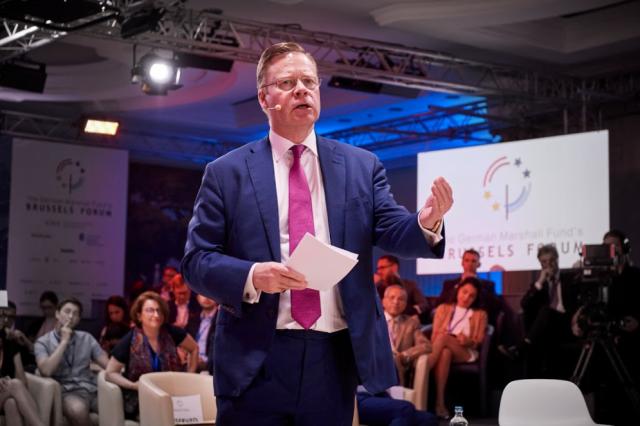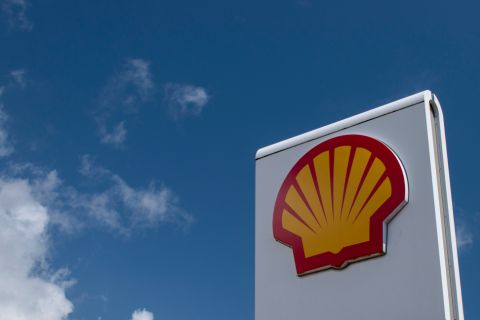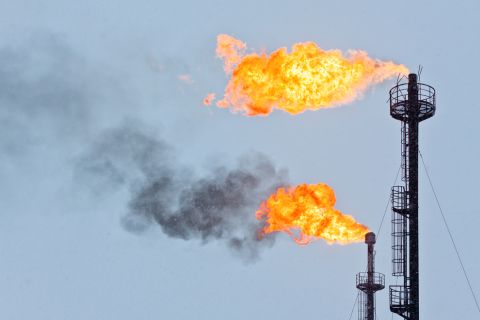
Iain Conn speaking at the GMF Brussels Forum in early July. Conn had joined Centrica from BP in 2015. (Source: Centrica Plc)
Iain Conn has agreed to end his tumultuous four-and-a-half-year reign as CEO of Centrica Plc, Britain’s biggest energy supplier, after making another hefty cut to the dividend and announcing the sale of its oil and gas production arm.
Shares in Centrica plunged 19% to a 22-year low after it slashed the dividend by more than expected to 5 pence—down 58%—raised cost-savings targets and said it would offload its stake in Spirit Energy, its oil and gas joint venture.
It also downgraded revenue expectations from one of its key growth businesses which sells devices for the home such as smart thermostats and light switches that can be controlled remotely, once again raising questions about the company’s strategic direction.
Analysts have long questioned whether Centrica needed a rethink after Conn decided in 2015 to refocus the company away from oil and gas production to focus on customer-facing business such as energy supply and smart “connected home” products.
“I think investors are just tired,” said Deepa Venkateswaran, analyst at Bernstein said following July 30’s announcement.
“It wasn’t that the board suggested [I depart] and I agreed, we agreed together.”
— Iain Conn
The share price fall heightened fears that Centrica could be ejected from the FTSE 100 index at the next reshuffle and become vulnerable to activist investors that may try to break up the company.
One person familiar with the thinking of Centrica’s board said the break-up value of the group was closer to 150 pence a share. The stock closed at 73.58 pence on July 30.
Shares in the energy supplier, which operates in countries including North America and Ireland as well as its U.K. home market, have fallen more than 70% since Conn joined the company in January 2015 from BP Plc, where he oversaw the oil major’s refining and marketing business.
He has agreed with Centrica’s board, led by new chairman Charles Berry, to leave after the company’s annual meeting next year, a decision Conn insisted was mutual and about which he had been holding discussions for a number of months.
“It wasn’t that the board suggested [I depart] and I agreed, we agreed together,” Conn said.
Conn has been a divisive character in the U.K., where Centrica-owned energy provider British Gas has a particularly high-profile owing to its privatization in 1986 as part of a sweeping program initiated by former prime minister Margaret Thatcher. It has a significant retail shareholding.
His pay, which has totaled more than 11 million pounds since 2015, has frequently come under attack from campaigners against excessive boardroom remuneration and unions, at a time when the company has also been making deep job cuts.
In the past four years, Centrica has announced 9,000 jobs cuts and unions are braced for more after the company raised an annualized efficiency savings target for 2019-2022 by 250 million to 1 billion pounds.
Centrica fell to a 569 million-pound pre-tax loss in the first six months of the year, from a 415 million-pound profit a year earlier as it booked hefty exceptional charges, including restructuring costs and higher pension contributions.
Between January and June it lost 178,000 domestic energy supply accounts in the U.K., with the biggest suppliers under pressure from new entrants to the market offering cheaper deals. Conn said, however, that the number of accounts had grown in May and June.
Recommended Reading
Shell’s CEO Sawan Says Confidence in US LNG is Slipping
2024-02-05 - Issues related to Venture Global LNG’s contract commitments and U.S. President Joe Biden’s recent decision to pause approvals of new U.S. liquefaction plants have raised questions about the reliability of the American LNG sector, according to Shell CEO Wael Sawan.
BP Pursues ‘25-by-‘25’ Target to Amp Up LNG Production
2024-02-15 - BP wants to boost its LNG portfolio to 25 mtpa by 2025 under a plan dubbed “25-by-25,” upping its portfolio by 9% compared to 2023, CEO Murray Auchincloss said during the company’s webcast with analysts.
President: Financial Debt for Mexico's Pemex Totaled $106.8B End of 2023
2024-02-21 - President Andres Manuel Lopez Obrador revealed the debt data in a chart from a presentation on Pemex at a government press conference.
Some Payne, But Mostly Gain for H&P in Q4 2023
2024-01-31 - Helmerich & Payne’s revenue grew internationally and in North America but declined in the Gulf of Mexico compared to the previous quarter.
Green Swan Seeks US Financing for Global Decarbonization Projects
2024-02-21 - Green Swan, an investment platform seeking to provide capital to countries signed on to the Paris Agreement, is courting U.S. investors to fund decarbonization projects in countries including Iran and Venezuela, its executives told Hart Energy.




